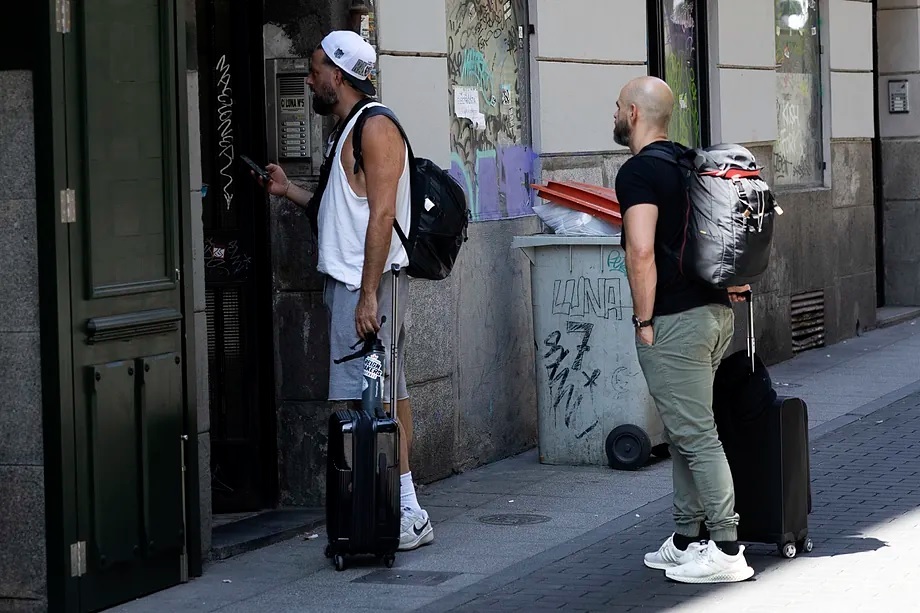Starting this Monday, vehicle rental companies, tourist accommodation providers, as well as travel agencies, are required to collect much more information from their customers than before to then transfer it to the Ministry of the Interior. However, the website responsible for hosting all the data, SES.Hospedajes, designed by the department led by Fernando Grande-Marlaska, has crashed since early morning, preventing companies from registering their users as required by the new regulations that come into effect today.
"An already chaotic procedure," denounced on Monday the travel agency association, Acave, which had already expressed its total rejection of the new traveler registration a few days ago, considering it "disproportionate" as it adds bureaucratic burdens that are difficult to manage and discourages tourism. In a statement, the association pointed out that travel agencies have to work with at least three different platforms depending on where the contracted services are provided, all of which are presenting "many technical errors."
The Spanish Confederation of Hotels and Tourist Accommodations (Cehat) also criticized the new regulations as abusive and warned that it not only negatively affects international tourists but also Spanish citizens who use hotels and accommodations when traveling within the country. "They will face more complex and tedious administrative procedures, compromising their accommodation experience."
This is not the first time that the tourism and hospitality sector has spoken out against the regulations, which are included in Royal Decree 933/2021, of October 26. Its implementation has been postponed three times; however, the Ministry of the Interior rejects a new extension this time and defends its usefulness as a police tool for prevention and combating organized crime and terrorism, for which accommodation and vehicle logistics "are crucial." Therefore, with the new registration, Marlaska's department aims to have "precise and essential" information for law enforcement agencies, as the previous regulations were outdated and did not cover new business models, such as tourist accommodations, online platforms, and digital booking centers. In this sense, they argue that with the nearly 4.8 million data collected, they have been able to locate 18,584 individuals listed in national or international databases, aligning with the main purpose of the decree, which is to enhance public safety.
Thus, the traveler registration, which has existed since 2022, but until now companies only reported their customers voluntarily, aims to "regulate the documentary registration and information obligations provided for in the citizen security protection regulations" for individuals or legal entities engaged, whether professionally or not, in "lodging or motor vehicle rental activities without a driver." This includes obligating those who rent out tourist apartments to register their tenants.
From now on, companies must collect detailed customer information such as name, gender, ID number, nationality, date of birth, usual place of residence, full address, phone number, email, number of accompanying travelers, and their relationship if there is a minor. Additionally, information is required about the transaction —date, check-in and check-out times, reference number—, the property —internet connection availability, number of rooms—, and the payment —cardholder, card expiration date, payment date— and all this data will be stored on the same platform that has become inoperative during its debut. Furthermore, the regulations also include fines of up to ¤30,000 for companies that fail to comply.
